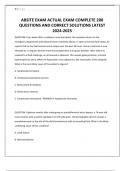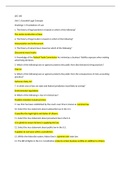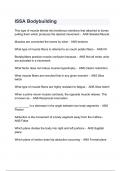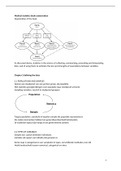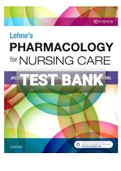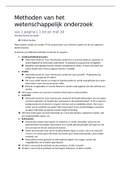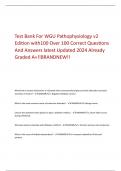Exam (elaborations)
ABSITE EXAM ACTUAL EXAM COMPLETE 200 QUESTIONS AND CORRECT SOLUTIONS LATEST
- Course
- Institution
1 | Page ABSITE EXAM ACTUAL EXAM COMPLETE 200 QUESTIONS AND CORRECT SOLUTIONS LATEST QUESTION: Four weeks after a cadaveric renal transplant, the recipient returns to the emergency department with bilateral lower extremity edema. In spite of normal fluid intake, he reports that he h...
[Show more]
